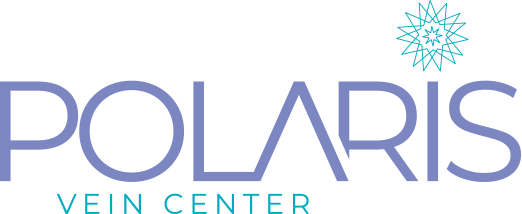Varicose Veins During Pregnancy

Why do women get varicose veins while pregnant?
Many women develop varicose veins during pregnancy. If they already have varicose veins they may get worse while pregnant, and with each successive pregnancy. There are other contributing factors as well such as being overweight, carrying more than one baby, and working a job that requires standing for long periods of time. Here’s some information to help shed some light on how your job can affect your veins.
Why does pregnancy cause varicose veins?
As your uterus grows, it puts pressure on the large vein on the right side of the body (the inferior vena cava), causing an increase in pressure on your veins. In addition, the amount of blood in your body increases while pregnant, adding even more stress to your veins.
What is the inferior vena cava?
The inferior vena cava is a large vein that carries blood from the lower half of your body to your heart, passing through your lungs along the way to get oxygen. It is responsible for providing blood and oxygen to the growing baby inside your uterus. If the vena cava is compressed, the blood flow to your baby could decrease (see tip #4 below).
Do varicose veins go away after giving birth?
If this is the first time you’ve had varicose veins they may improve after giving birth. The good news is even if your varicose veins don’t get better, there are non-surgical treatments that can help.
How long does it take for varicose veins to go away after giving birth?
Varicose veins may improve on their own after three to four months, but they also may not improve at all.
What can I do to prevent varicose veins while pregnant?
Even if you can’t prevent them (some women are more susceptible than others) you can try to minimize varicose veins during pregnancy by following a few suggestions.
5 things you can do to prevent varicose veins during pregnancy:
1. Get up and move.
A daily walk can do wonders for your circulation. Also, get up and move around every few hours if you find yourself sitting for long periods of time.
2. Maintain a healthy pregnant weight.
Sure, you’re going to gain weight during pregnancy. After all, you’re eating for two now (or three, or four…). Keeping within your recommended weight range, however, will help reduce added stress on your body and your veins.
3. Elevate your legs.
When you sit or lay down, elevate your feet to make it easier for your veins to carry blood back to your heart.
4. Sleep on your left side.
Because the inferior vena cava (explained above) is on your right side, it makes sense to sleep on your left side to alleviate the added pressure from your uterus.
5. Wear compression hose.
Compression stockings help prevent swelling and come in different styles, including knee high, thigh high and open toe. Sure, wearing them could make you hotter than you already are, but they help improve circulation and help prevent varicose veins.
Should I treat my varicose veins while I’m pregnant?
If your varicose veins are not causing any pain, treatment can wait until after your pregnancy. If, however, you develop small blot clots, hard rope-like veins that are painful to the touch, severe swelling or open sores, call your doctor.
Progesterone and varicose veins.
Since hormones fluctuate during pregnancy, high progesterone levels may also cause varicose veins as it can weaken the vein walls, making them more likely to become varicose.
Do all pregnant women get varicose veins?
Everyone’s body is different. In the same way that not all women get stretch marks, not all women get varicose veins while pregnant, but it is common and usually harmless.
What about spider veins? Will they go away after I have my baby?
In addition to varicose veins, you may also notice smaller, spider-like blood vessels on your face, legs and ankles during pregnancy. While unsightly, spider veins do not cause pain and are likely to disappear after you give birth. If they don’t, there are quick, non-surgical methods to get rid of them after you have your baby.
Pregnancy is a beautiful thing, but varicose veins are not! For varicose and spider vein treatments in Columbus, Ohio, contact the Columbus Vein Center at (614) 515-2240. There are many non-surgical treatments that can help. Need more info? Here are some frequently asked questions about varicose and spider veins.

